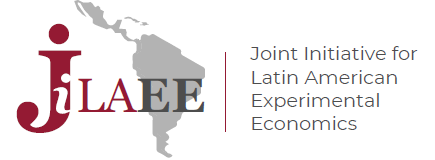“ Firms and the Evolution of Earnings Inequality in Argentina’s Volatile Economy”
Abstract: We document large fluctuations in earning inequality between 1995 and 2019 in Argentina. Leveraging Argentina's matched employer-employee dataset, we fit high-dimensional models of log earnings as a function of worker and firm fixed effects. Using our estimates we decompose the variance of log earnings into three components: worker characteristics, firm characteristics and assortative matching. We find a large contribution of firms to inequality: they account for one-third of the decline in inequality between the 1990s and 2000s, and fully explain the slight increase in the 2010s. On the other hand, we find a muted role for matching between high-wage workers and high-wage firms. We study the role of several drivers of firm-pay in driving these results, including firm productivity and collective bargaining institutions.
